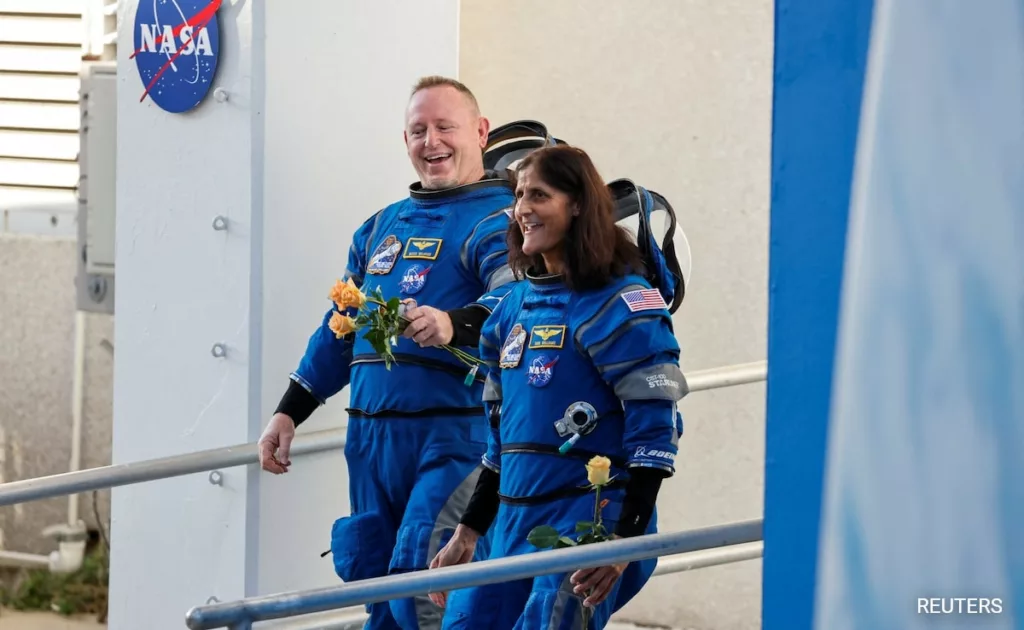Astronauts Sunita Williams and Butch Wilmore will return to Earth in February 2025, six months later than initially planned, NASA has revealed. The duo will depart from the International Space Station (ISS) aboard a SpaceX Crew Dragon spacecraft, instead of the originally intended Boeing Starliner. However, their extended stay has raised concerns about their survival, particularly regarding food and oxygen supply.
NASA has assured that there is no immediate danger to the astronauts and the ISS has sufficient provisions to support the crew for the additional time.
“The space station is well-stocked with everything the crew needs, including food, water, clothing and oxygen,” NASA stated. The agency stressed that regular resupply missions will ensure the astronauts’ needs are met, citing regular arrivals of cargo spacecraft carrying food, fuel and supplies.
The space station revealed that two spacecraft – one carrying “8,200 pounds of food, fuel, supplies” and another carrying “three tons of cargo” – arrived at the ISS recently.
Living in space for an extended period requires unique arrangements. On the ISS, astronauts can sleep anywhere – floor, ceiling or walls – thanks to zero gravity. They use sleeping stations, similar to phone booths, with sleeping bags and pillows attached to the floor, wall, or ceiling. Astronauts can also make video calls, audio calls or send emails through NASA.
The ISS has a gym, called the Advanced Resistive Exercise Device (ARED), where astronauts can work out using vacuum cylinders to simulate weights. They can perform exercises like squats, deadlifts and bench presses to maintain muscle mass and bone density until they return to Earth.
Aboard the ISS, Sunita Williams and Butch Wilmore also have access to the Vegetable Production System (Veggie garden) which allows them to grow fresh produce and even flowers in space. During their extended stay, the duo has been experimenting with various techniques to improve crop growth in space.
Williams and Wilmore are scheduled to return to Earth in late February aboard a SpaceX spacecraft. Meanwhile, their original ride, the Boeing Starliner, will undock in early September and attempt an uncrewed return journey.
NASA Administrator Bill Nelson talked about the agency’s commitment to safety, explaining the decision to keep the astronauts on the ISS and return the Starliner uncrewed, “Spaceflight is risky, even at its safest and most routine. A test flight, by nature, is neither safe nor routine.”
